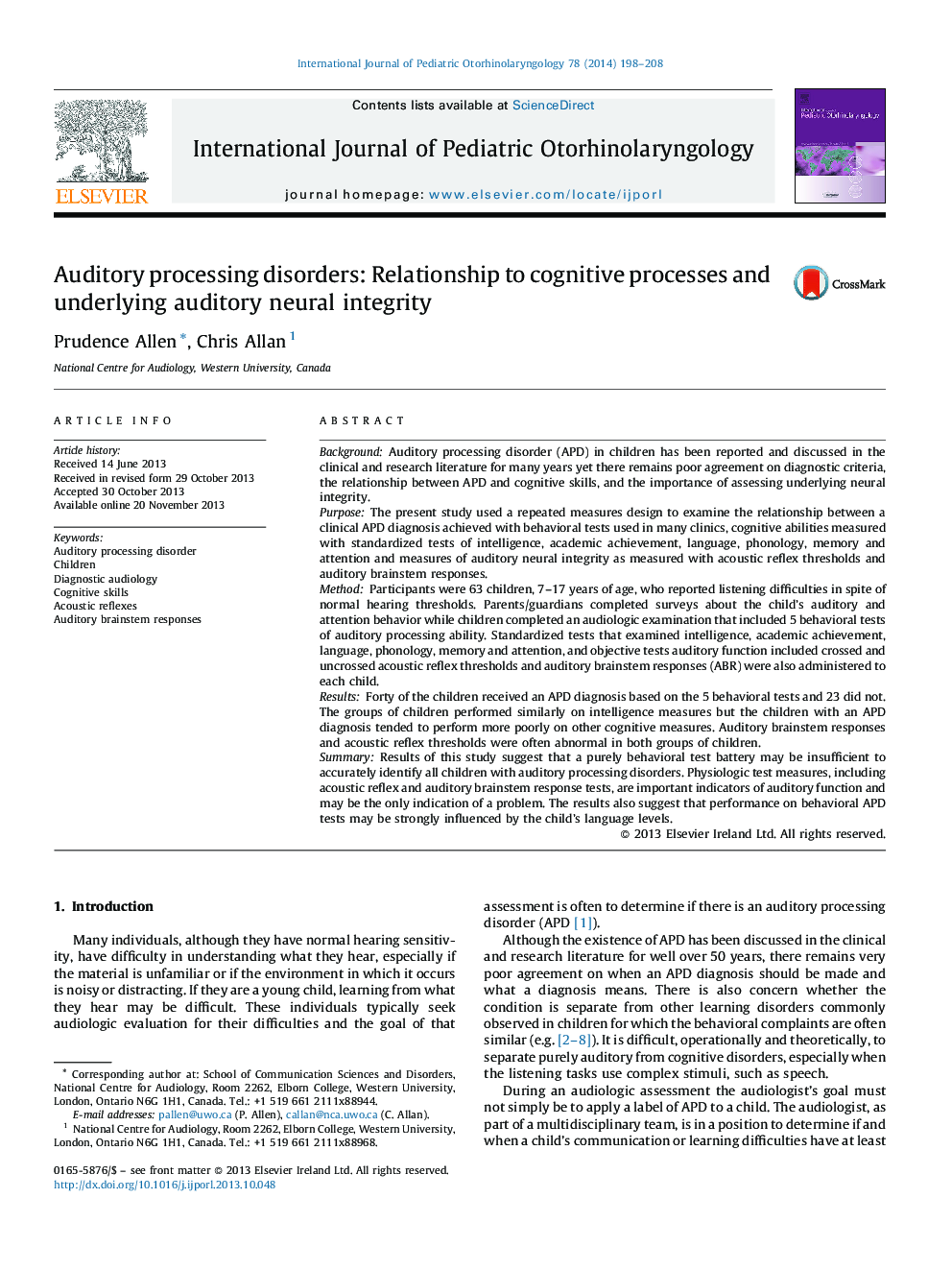| کد مقاله | کد نشریه | سال انتشار | مقاله انگلیسی | نسخه تمام متن |
|---|---|---|---|---|
| 6213802 | 1606011 | 2014 | 11 صفحه PDF | دانلود رایگان |
BackgroundAuditory processing disorder (APD) in children has been reported and discussed in the clinical and research literature for many years yet there remains poor agreement on diagnostic criteria, the relationship between APD and cognitive skills, and the importance of assessing underlying neural integrity.PurposeThe present study used a repeated measures design to examine the relationship between a clinical APD diagnosis achieved with behavioral tests used in many clinics, cognitive abilities measured with standardized tests of intelligence, academic achievement, language, phonology, memory and attention and measures of auditory neural integrity as measured with acoustic reflex thresholds and auditory brainstem responses.MethodParticipants were 63 children, 7-17 years of age, who reported listening difficulties in spite of normal hearing thresholds. Parents/guardians completed surveys about the child's auditory and attention behavior while children completed an audiologic examination that included 5 behavioral tests of auditory processing ability. Standardized tests that examined intelligence, academic achievement, language, phonology, memory and attention, and objective tests auditory function included crossed and uncrossed acoustic reflex thresholds and auditory brainstem responses (ABR) were also administered to each child.ResultsForty of the children received an APD diagnosis based on the 5 behavioral tests and 23 did not. The groups of children performed similarly on intelligence measures but the children with an APD diagnosis tended to perform more poorly on other cognitive measures. Auditory brainstem responses and acoustic reflex thresholds were often abnormal in both groups of children.SummaryResults of this study suggest that a purely behavioral test battery may be insufficient to accurately identify all children with auditory processing disorders. Physiologic test measures, including acoustic reflex and auditory brainstem response tests, are important indicators of auditory function and may be the only indication of a problem. The results also suggest that performance on behavioral APD tests may be strongly influenced by the child's language levels.
Journal: International Journal of Pediatric Otorhinolaryngology - Volume 78, Issue 2, February 2014, Pages 198-208
